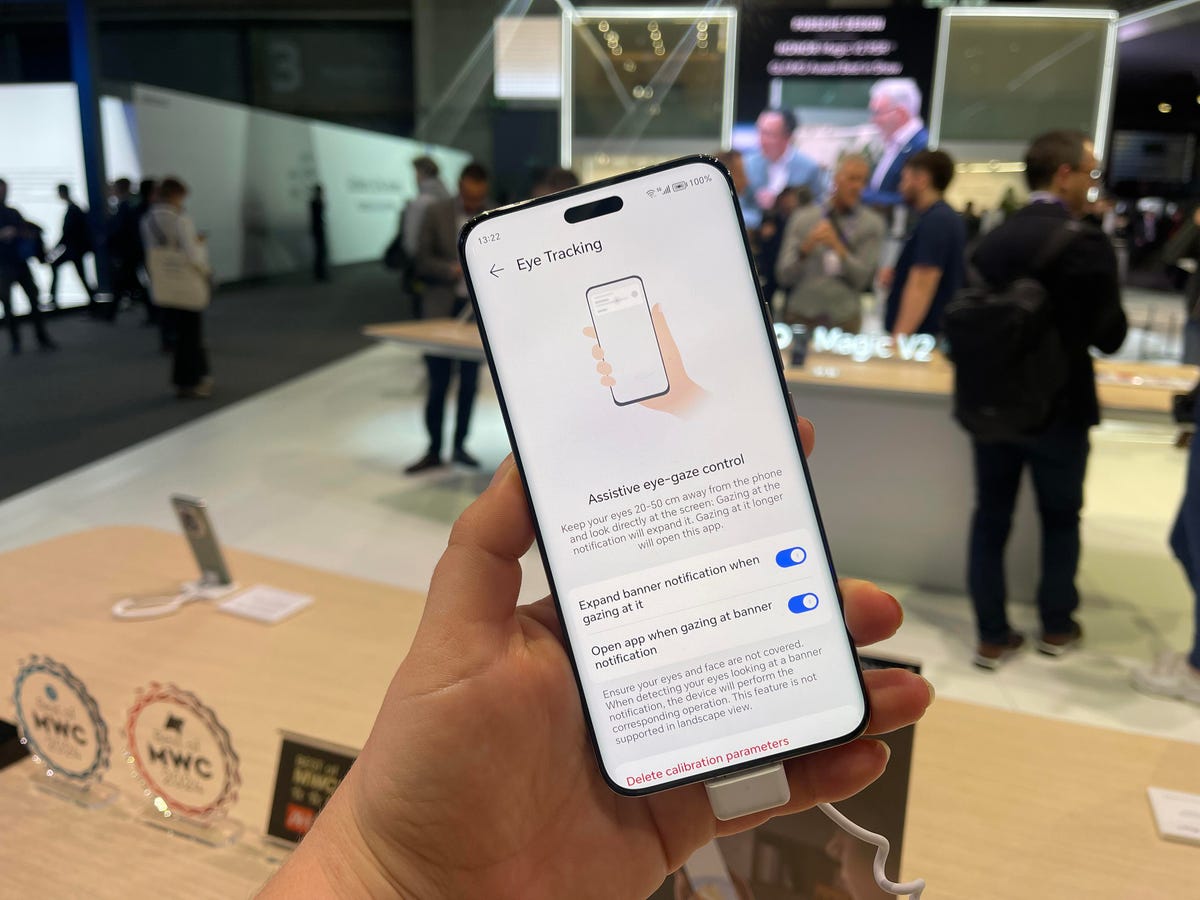I grew up in the nineties when two of my key cultural touchstones were spoon-bending TV illusionist Uri Geller and the film version of Matilda starring young Mara Wilson, in which she makes objects levitate at will. As a result, I thought it was in the cards for me to make something magical happen simply by concentrating and staring at an object really, really hard.
I never did get a spoon to bend or glass of water to fall over with my mind, but I didn’t totally lose faith. Turns out that I can make things move simply by concentrating and staring — I just needed help from technology company Honor.
Read more: Best Phone To Buy For 2024
At Mobile World Congress in Barcelona this week, Honor revealed its latest flagship phone, the Magic 6 Pro. Alongside the unveiling, it demoed how to use the phone’s eye-tracking capabilities to perform tasks including moving an entire actual car via an app with remote controls. I didn’t move a car, but I did get to try out how the technology works on the Magic 6 Pro for myself.
I started off by calibrating the phone so it would recognize my eye movements. This is similar process to setting up your biometric passcode on any of your devices. The entire calibration can’t have taken more than 10 seconds. The Magic Capsule at the top of the phone’s display tracked my eyes as they followed a dot around the screen, after which I was ready to go.

Setting up eye-tracking was extremely quick.
The main way in which Honor puts its eye-tracking technology to use is not to drive cars, but to open your notifications. A friendly man at the MWC Honor booth called the phone I was using and a direction appeared on the screen telling me to look at a specific spot at the top left corner of the screen if I wanted to answer. I also was able to turn off an alarm and open messages the same way — simply by directing my gaze to a specific point on the screen. It was easy, fast and responsive.
I can already imagine how useful this could be in my daily life. If, for example, I had a timer set while cooking that I wanted to turn off, but my hands were covered in food, or if I spotted a message coming in during a meeting that I wanted to open and read without looking rude by picking up my phone.
These are very practical applications, but I want to take a moment to acknowledge how cool it was to experience Honor’s eye-tracking tech. It felt like my eyes had a whole new set of powers, which after thirty-something years of them not being able to do anything but see (not that I take this for granted, of course), was a revelation. It also occurred to me that adding eye-tracking tech into devices also creates new possibilities for better accessibility for people, who for a whole range of reasons, may not be able to rely on touch.
Eye tracking will only be available to use on Honor Magic 6 Pro models in China for now, so it’s back to trying to bend spoons with my mind for me. But thanks to Honor, I’m already looking forward with anticipation to the day when using my eyes to interact with my personal tech is as natural to me as using my hands or my voice.




















+ There are no comments
Add yours